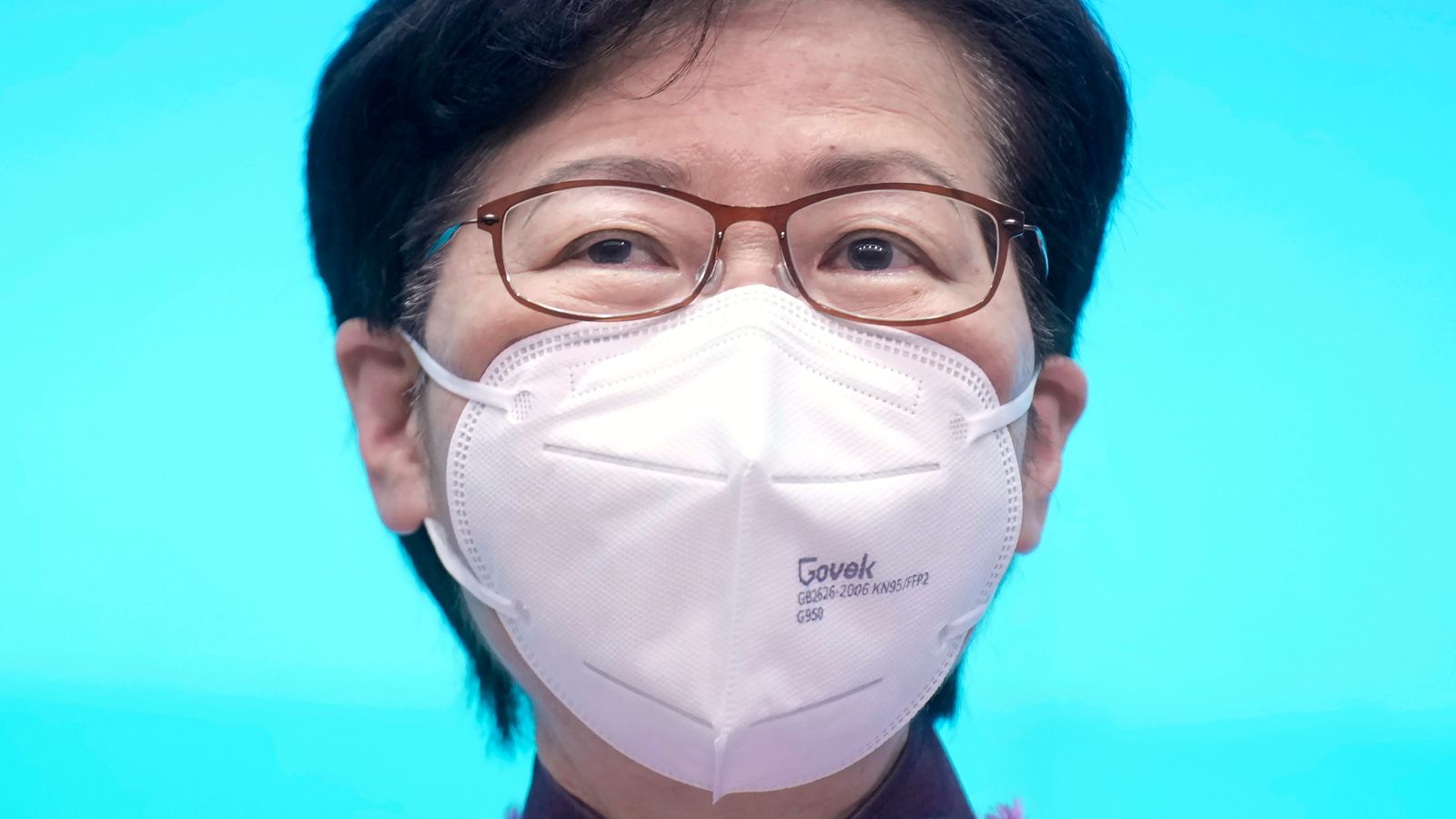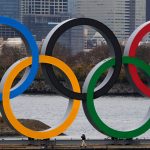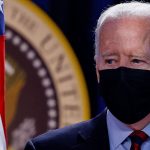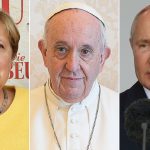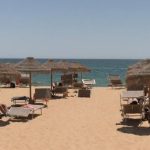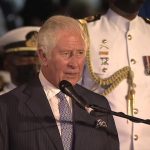Hong Kong leader Carrie Lam, who survived massive protests against her government in 2019, has announced she will not seek a second term.
Ms Lam has overseen the implementation of a controversial national security law that quashed dissent during a turbulent time in the city’s history.
Her current term comes to an end on 30 June, but she will not seek to extend her time as leader, she told a news conference on Monday.
It comes after British judges resigned from serving in Hong Kong’s top courts due to an erosion of democracy and liberty caused by the sweeping national security law imposed by China.
“I will complete my five year term as chief executive on the 30th of June this year, and I will also call an end to my 42 years of public service,” Ms Lam said.
Read more: Why did people protest in Hong Kong?
Please use Chrome browser for a more accessible video player
Speculation had swirled for months about whether she would seek another term, but she said that her decision had been conveyed to the central government in Beijing last year and was met with “respect and understanding.”
It follows massive protests against the territory’s government in 2019 – including calls for Ms Lam to step down.
The demonstrations were met with a tough national security law from Beijing that has stifled dissent in the semiautonomous Chinese city.
At one point, the unrest saw Ms Lam trapped inside the Queen Elizabeth Stadium in September 2019 after protesters barred all the exits to the venue, stopping her from leaving.
Subscribe to the Daily podcast on Apple Podcasts, Google Podcasts, Spotify, Spreaker
Tens of thousands of people have sought to swap Hong Kong for the UK as a result of the new law, taking advantage of a British government scheme to resettle them over the past year.
More recently, Ms Lam had overseen a tough zero-COVID strategy mirroring that of China – but a record surge in cases earlier this year was mirrored by high death rates due to low vaccination coverage among the elderly.
Asia correspondent
Carrie Lam presided over Hong Kong’s most tumultuous period since it was handed over by the UK to China in 1997.
Three big events have left the city much changed: the 2019 protests, the imposition of the national security law and the territory’s handling of COVID.
Lam was pivotal to them all, but none more so than the 2019 protests. These ended violently, but that was not inevitable, given the peaceful mass marches of early summer.
Millions called for an end to a proposed extradition law between Hong Kong and mainland China. Lam wouldn’t budge on that to begin with, instead relying on the police to quash them, starting a cycle of escalation.
Without that turmoil, Beijing may not have imposed the sweeping national security law. That led to the weakening of Hong Kong’s traditional freedoms and condemnation from the West.
Lastly, COVID. Hong Kong shut itself off from the world and did well to keep the virus at bay. But its latest wave has been devastating, resulting in the highest daily death rate in the world, and the agony of parents being separated from their children because of strict COVID policies.
And as a result of those restrictions, and the national security law, Hong Kong has lost its lustre as a business hub to Singapore, and seen a brain drain of local and expat talent.
But the city is much more firmly in Beijing’s grip – an outcome that Lam and the central authorities are likely happy with.
How will a new leader be chosen?
Hong Kong’s leader is elected by a committee made up of lawmakers, representatives of various industries and professions, and pro-Beijing representatives such as Hong Kong deputies to China’s legislature.
One of the unfulfilled demands of the 2019 protests was direct election of the city’s chief executive.
While her successor will not be decided until May as high COVID rates postponed the election, Hong Kong media is reporting that her number two John Lee is likely to enter the race for leader.
Chief secretary Mr Lee was the city’s head of security during the protests.
